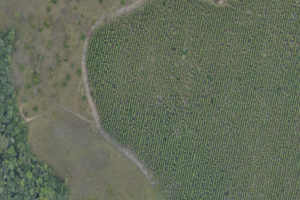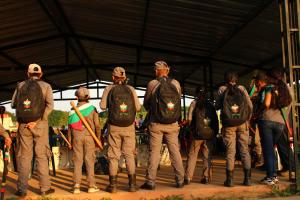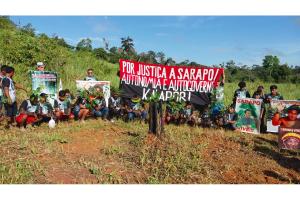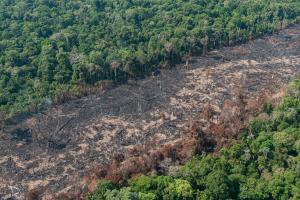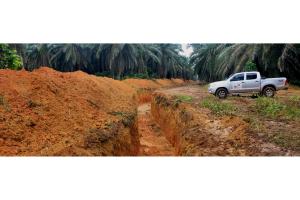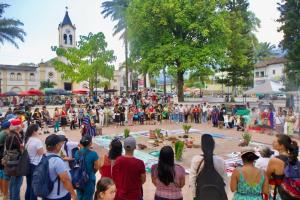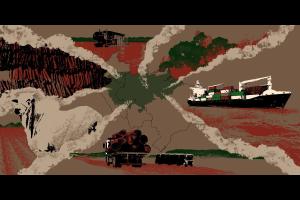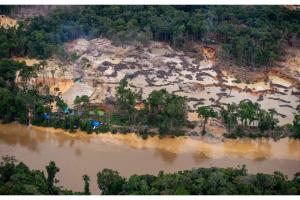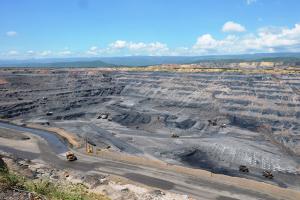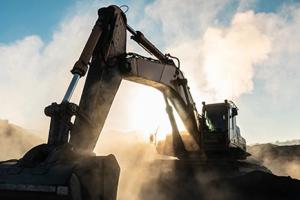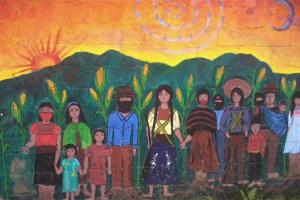Bulletin articles
23 April 2025
Several companies have been expanding their tree plantations in the Colombian Orinoquía, which is increasing longstanding conflicts and violence. “These are not reforestation companies, but deforestation companies, because they have introduced invasive tree species that are not native to the territory – like acacia, eucalyptus and pine trees. So they are driving out what naturally grows here” - Indigenous Sikuani Leader
Bulletin articles
22 August 2024
Colombia's Orinoquía region stretches from the foothills of the country's eastern mountain range to the Venezuelan border. This region has historically been associated with the exploitation of rubber, timber, furs and other so-called “natural resources,” to the detriment of ancestral communities. Today, new threats are emerging under the paradigm of conservation, green energy and carbon projects.
Articles
24 May 2024
Once again the Ka’apor people, through their ancestral organization TUXA TA PAME, has demonstrated its strength, on May 12, 13 and 14. They denounce the atrocities that Indigenous Peoples and quilombola and peasant traditional communities suffer in the hands large-scale landowners, loggers, mining corporations, gold diggers, carbon credit speculators and the agribusiness sector.
Bulletin articles
27 February 2024
The Amazon region is one of the final frontiers of resistance to capital expansion. This is epitomized by the struggles of social activists such as Chico Mendes, as well as by the presence of most of the earth’s remaining indigenous peoples in voluntary isolation. However, different forms of ‘green’ extractivism are currently and increasingly advancing on this territory.
Bulletin articles
26 February 2024
In the Acará Valley, Pará state, the Tembé and Turiwara indigenous peoples, and quilombola and peasant communities are fighting to take back part of the living spaces they traditionally occupied. It is not just a struggle for territory, but one to reverse a history of oppression and injustice. Today, they are denouncing structural violence and state omission.
Bulletin articles
26 February 2024
Mocoa is located between the Andean mountains and the Colombian Amazon, in the middle of one of the most important river basins of the country; in this territory, indigenous communities, Afro-Descendants, peasants and settlers coexist. The growing demand for minerals for the “decarbonization” of the world is a threat to this region, where mining companies are trying to move forward with underground copper extraction.
Bulletin articles
16 January 2023
Most of the causes of deforestation that were identified in a UN-led global analysis from 1999 continue to exist. Yet, the “solutions” proposed since then have become new underlying causes of deforestation. In this scenario, projects that destroy the forest and “green” projects depend on each other in order to be viable.
Bulletin articles
12 September 2022
The discourse of the 'energy transition' is usually used to justify the expansion of the mineral extractive frontier. However, in addition to local pollution and impacts on forests and people, the extraction and processing of minerals require large quantities of water, with long-lasting and far-reaching effects on territories.
Articles
28 April 2022
This article outlines the carbon pricing system in Colombia and reveals how mining companies have been using REDD+ to legally avoid paying taxes while claiming ‘carbon neutrality’.
Bulletin articles
18 May 2021
The mining sector seeks to gain legitimacy and expand its frontiers of accumulation and territorial control. It does so using a discourse of sustainability and by investing in so-called “nature-based solutions.
Bulletin articles
17 November 2020
WRM spoke with close allies from Brazil, Gabon, India, Mexico and Mozambique, to hear from them and learn about their understandings of development.
Action alerts
28 July 2020
We invite organizations from Brazil, and also from other countries, to sign-on this letter -until September 21st- to strengthen our struggle and resistance against the impacts of corporations in our territories.
